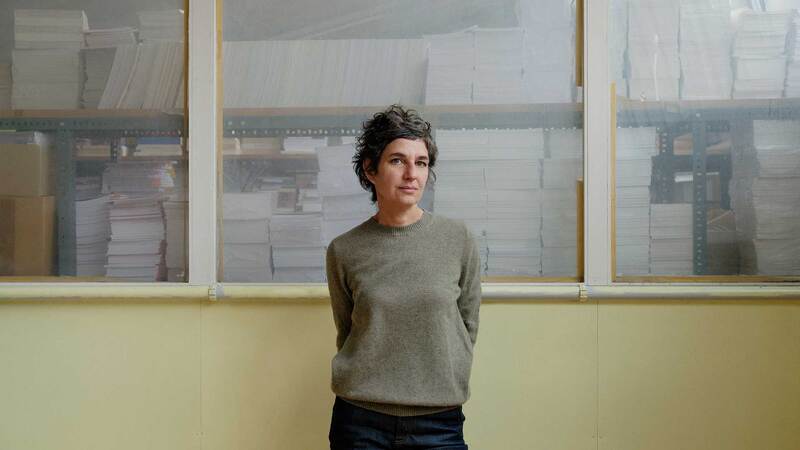You are viewing your 1 free article this month. Login to read more articles.
Hopeful Buenos Aires banks on upturn
Spanish distributors and publishers have been busy meeting with Argentine retail buyers at the 42nd Buenos Aires International Book Fair, as Argentina’s new centre-right government’s lifting of import restrictions and hope of an economic recovery have improved the potential for sales.
“Argentina is the new hotspot in Latin America,” Fernando López Daza, manager of Época Distribuciones, a Madrid-based distributor, said on the final day of the fair (9th May).
Sales in Colombia, Mexico, Peru and Uruguay have been hit by economic slowdowns and the countries’ weaker currencies have pushed up the price of Spanish books. Argentina’s economy, on the other hand, is poised to rebound under a government led by president Mauricio Macri, elected last October. “There is a craving to buy books this year, unlike in previous years,” López Daza said.
Foreign publishers had been struggling to sell books in Argentina after the previous, populist-left government restricted imports at the end of 2011 to ease the flight of capital from the country. Argentina had lost access to global capital markets after defaulting on $100bn of debt in 2001, and a failure to fully settle the liabilities left it reliant on a limited pool of local financing. This led to a decline in dollar reserves to pay its national debt and the prioritisation of essential imports, such as energy and food, rather than books.
Book imports tumbled 45% to 64.2 million copies in 2012 (from 117.3 million in 2011), and sank to 40.3 million in 2015, according to trade body Cámara Argentina del Libro (CAL). With less competition from abroad, Argentine publishers increased their output to an annual average of 27,700 titles between 2011 and 2015, up from an average of 17,000 over the previous decade, according to CAL.
This year, imports are poised to recover, however. The president has returned the country to international financial markets since taking power, while lifting import and capital controls—enabling the currency to float freely and depreciate by more than 40%.
The International Monetary Fund forecasts 2.8% economic growth in 2017, after a 1% contraction this year. “We’ve all come to sink our teeth into the Argentine market,” López Daza said of the Spanish contingent at the fair, citing pent-up demand for Spanish comic books, children’s titles and the latest titles from popular Spanish novelists such as Arturo Pérez-Reverte and Juan José Millás, plus illustrated books by artist Luis Royo. Indeed, Spanish writers were prominent speakers at the fair, including novelists Milena Busquets and Julia Navarro, and poet Vicente Cervera Salinas.
But with an influx of imported books, local publishers may face a decline in business. “There is going to be more competition,” said Marité Schmidt, director of Quipu, an Argentine publisher of children’s books and YA titles. To sustain sales, Quipu plans to expand its line of adventure, detective, horror and mystery books for 10 to 12-year-olds (they have already been selected by the Argentina public elementary school system) to expose students to Argentine writers. Its popular titles include Guillermo Barrantes’ Las Vueltas de la Muerte (Turns of Death), José Montero’s Misterios Urbanos (Urban Mysteries) series and Gabriel Korenfeld’s Colegio Maldito (Damned School) series.
The turnaround is yet to affect Argentina’s book sales, however. The recession and a 40% inflation rate have made 2016 tough so far. Daniel Jorge Razzetto, vice- president of Galerna, a Buenos Aires-based distributor and publisher, said sales dropped by 7%–8% year on year in the first quarter of 2016 through the company’s chain of 14 Gandhi bookstores. He said other booksellers were reporting similar declines, but added that a recovery was likely in the second half of the year if the government can rein in inflation and lower interest rates to revive consumer spending.
He’s not alone in this optimism. “It’s difficult now, but we expect to end the year well,” said Raúl Robledo, head of sales in Argentina for Editorial Planeta, a division of Spain’s El Grupo Planeta.
Planeta’s sales have not been too badly hit this year, thanks to a strategy of publishing 30–40 titles a month in an array of genres, Robledo said. An upturn in sales for the publisher could come this month with the release of Facundo Manes’ Cerebro Argentino (The Argentine Brain), building on the buzz for neuroscience books. Other pending releases by Argentine writers that could do well, Robledo added, are Viviana Rivero’s romantic novel Los Colores de la Felicidad (The Colours of Happiness) and Tiffany Calligaris’ latest title in her Witches series for young adults.
The economic recovery and easing of import restrictions could also spur sales of e-readers and tablets. If Apple and Amazon start to sell devices in Argentina in significant numbers, this will help build the e-reader market and spur local publishers to pursue digital business models, said Daniel Benchimol, director of Proyecto451, which helps publishers enter the e-book market.

















